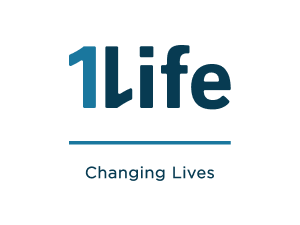
The contentious Green Paper on Comprehensive Social Security and Retirement Reform recently published by the Department of Social Development, and which was then subsequently withdrawn, has undoubtedly left many thinking about how we look after ourselves and our families financially, as we age and after we pass away. Afterall, wanting to give your children a better future, one with less financial challenges than you had, is a near universal desire. A key part of these considerations needs to be the role of generational wealth.
Generational wealth is, broadly speaking, the ability to transfer financial and other valuable assets to your children and their future generations. It can take many forms and can include one or more of the following: cash and savings, property, life insurance, investments and trusts, family-owned businesses, and heirlooms with financial value like jewellery and art.
In South Africa, however, the ability to build generational wealth is not just a factor of a family’s willingness to focus on wealth building for years to come. South Africa is a country dealing with a past of dispossession and segregation which built a firm foundation for wealth inequality to endure well beyond the end of Apartheid.
This history has been compounded by years of low economic growth, a global recession and the recent COVID-19 pandemic which has driven up the country’s unemployment rate to a staggering 44%. Understandably, this reality makes the aspiration of generational wealth seem like a pipe dream for countless families living in abject poverty.
On the other hand, international real estate consultant Knight Frank’s annual Wealth Report estimates that South Africa had 44605 High Net Worth Individuals (liquid assets more than $1 million US) and 742 Ultra High Net Worth Individuals (liquid assets more than $30 million US) in 2020. Compare these numbers with Stats SA’s mid-year population estimate for South Africa in 2021 of 60.14 million people. This means these groups represent 0.07% and 0.0012% of the population, respectively.
When it comes to understanding how wealth is transferred from generation to generation, a recent United Nations World Institute for Development Economic Research (UN-WIDER) Working Paper, “Estimating the distribution of household wealth in South Africa” notes that there is a lack of data available to track intergenerational wealth dynamics in South Africa. This means we know there is wealth concentration, but we don’t understand how, and to what extent, this wealth is either lost or passed down in families.
Despite these complex challenges, generational wealth shouldn’t be considered out of reach for all but already wealthy South Africans. Just like tackling inequality doesn’t need to be a simple choice between increasing or decreasing the number of High-Net-Worth Individuals.
There are more young South Africans, from increasingly diverse backgrounds, receiving post-school education and earning reliable incomes. Nurturing generational wealth building for these South Africans needs to be a focus for the financial sector in South Africa. This is a tangible way we can help to build a middle tier of future wealth that combats inequality.
Our approach to helping these South Africans build wealth needs to consider the context many face. Our country is notorious for having a poor savings culture and high consumer debt. Young working South Africans also often support their families or have dependents. This is often referred to as Black Tax – referring to individuals who may be the first in their families to have received post school education. For these South Africans there can be significant demands on their income from family members who have little or no incomes themselves. With persistent high unemployment, it is likely that more South Africans are going to find themselves in this tough position.
A recent survey of our customers highlights this pressure. It showed that most of the people surveyed don’t have generational wealth; yet over 80% felt that they were expected to create it for their families. Only 39% understood what generation wealth is, and how to create it.
For these individuals and their families, generational wealth needs to be reconceived with a realization that there need not be an all or nothing approach. If anything, the concentration of wealth and significant levels of poverty discussed above show that for many South Africans the journey to build generational wealth needs to start with small steps and a basic approach. Tackling debt, making better informed decisions about financial services (including understanding the opportunity cost of buying funeral cover over life insurance, for example), understanding what constitutes generational wealth and the options available for saving and investment – are all vital first steps in this journey.
As is changing a family’s approach to finances. In families where wealth and finances are openly discussed and financial education is prioritised, successive generations can begin to inherit wealth, benefit from it, invest it, grow it and then leave it to their children.
We believe that access to high quality and free financial education can help South Africans in these circumstances be empowered to say: ‘generational wealth starts with me’ – taking the first steps to leaving a more financially secure legacy for their children. That is why our financial literacy programme, Truth About Money, is available free of charge to South Africans who wish to start their journey. It gives valuable insight into building generational wealth, regardless of where you are starting from.
Building generational wealth is possible for many more families in this country – but it will take financial institutions working hand in hand with them. This is by no means the solution to South Africa’s inequality problem, but it is a vital step worth taking and we are proud to be doing more to put more families in South Africa on their wealth journey.